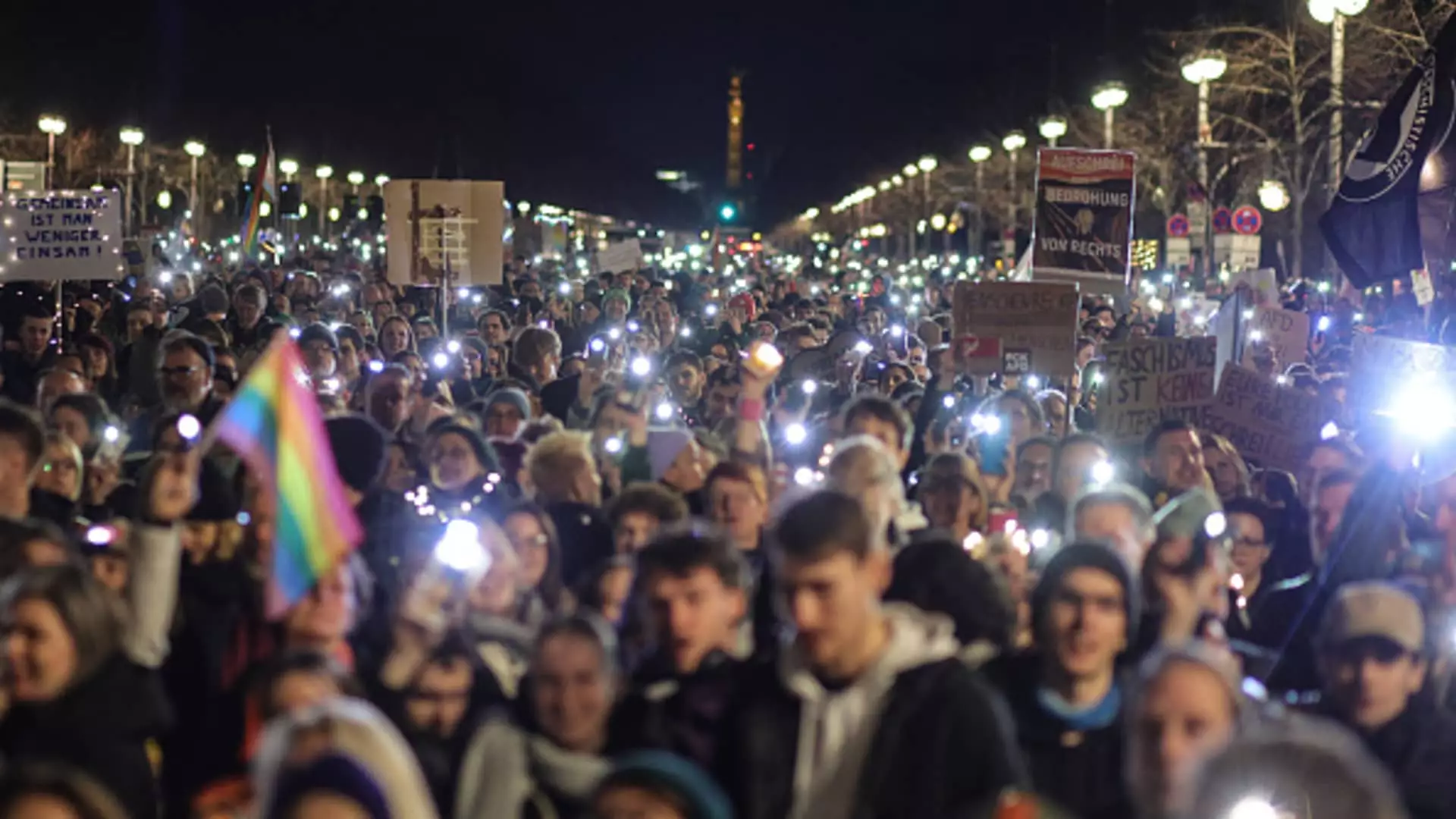In a significant display of public sentiment, tens of thousands of Germans took to the streets on Saturday to protest the increasing influence of the far-right Alternative for Germany (AfD) party, especially in the lead-up to the pivotal general election scheduled for February 23. Major cities, with Berlin at the forefront, witnessed an outpouring of activists who vocalized their opposition to xenophobia and anti-immigrant sentiments. At the iconic Brandenburg Gate, demonstrators waved banners, chanted anti-fascist slogans, and used whistles to express their discontent with the AfD and its ideological underpinnings.
Activists emphasized that the protest was not solely aimed at the AfD but also sought to highlight the broader rise of far-right politics across Europe, alongside concerns regarding the administration of U.S. President Donald Trump. Prominent activist Luisa Neubauer, a representative of the Fridays for Future movement, underscored the dire consequences of such ideologies by asserting that those who propagate racism and undermine environmental sustainability pose a real threat to lives. The police estimated the gathering in Berlin at around 35,000, while another protest in Cologne attracted approximately 40,000 participants, showcasing a robust pushback against far-right ideologies.
Germany is currently navigating a turbulent political landscape following the collapse of Chancellor Olaf Scholz’s three-party coalition late last year. This breakdown stemmed from disagreements over strategies to revive an economy experiencing stagnation. As the AfD launched its election campaign in Halle, led by its controversial chancellor candidate Alice Weidel, the larger socio-political context revealed the depth of discontent among citizens. Weidel’s affiliation with high-profile figures like Elon Musk, who voiced support for the party remotely, has stirred controversy, raising questions about the party’s acceptance in reputable circles.
Mainstream political factions in Germany grapple with the growing popularity of the AfD, resolutely asserting they will not engage with the far-right party. Yet, the opposition center-right Union bloc, which is currently leading in pre-election polls, faces a precarious situation as it contemplates migration policy reforms. As its candidate for chancellor, Friedrich Merz, prepares to advance legislative motions aimed at tightening immigration regulations, there is an underlying concern regarding the potential cooperation with the AfD. This could lead to accusations against Merz of sidelining the historical commitments made by mainstream parties to exclude any alignment with extremist factions.
The upcoming months are critical for the future of German politics as the public continues to respond to the challenges posed by the AfD and similar parties. The ongoing protests reflect a broader societal commitment to combating extremism and promoting inclusive values. As the election approaches, the complex interactions between mainstream parties and the far-right could significantly reshape the political landscape, potentially influencing public discourse and national policy for years to come. The unfolding dynamics demonstrate that while the AfD may be gaining traction, the public’s resistance against far-right ideologies remains formidable.



Leave a Reply